Discover Graduate Institute What Matters Today
Graduate Institute What Matters Today

Graduate Institute What Matters Today
Author: Geneva Graduate Institute
Subscribed: 107Played: 2,574Subscribe
Share
© 2023 Geneva Graduate Institute
Description
What Matters Today is a podcast series from the Geneva Graduate Institute in which we ask faculty members to comment on current issues impacting, economics, politics, health, and society.
69 Episodes
Reverse
Young people are often portrayed as politically disengaged, accused of turning their backs on voting and traditional politics. But is that really the full story? Recent waves of youth-led mobilisations—from climate marches to social justice movements—suggest something very different. So, how do we explain this apparent paradox? Are young people truly stepping away from politics, or are they reinventing it?
In this episode, we’ll explore what youth engagement looks like today: from the role of young voters in the United States to the issues driving activism across the Global South. We’ll also ask whether new forms of participation—both online and offline—signal a global movement or remain rooted in local priorities. And now that COP 30 has wrapped up, we’ll reflect on the lessons from years of youth-led climate activism: have they managed to influence policy or shift mindsets?
Our guest today is Dr. Laura Bullon-Cassis, a postdoctoral researcher at the Institute's Albert Hirschman Centre on Democracy.
For much of the modern era, the United States has stood at the heart of the global economy—anchoring the international monetary system, shaping the rules of trade, and driving global growth through its innovation and financial power. But today, this long-standing leadership is being tested on multiple fronts.
In this episode, we explore the shifting foundations of U.S. economic dominance: from pressures on the dollar’s role as the world’s reserve currency to the rise of China and the growing assertiveness of other economic actors. We look at how geopolitical fragmentation, internal U.S. political tensions, and debates over industrial policy are reshaping America’s global position.
Our guest is Cédric Tille, Professor of International Economics at the Geneva Graduate Institute, Head of the Bilateral Assistance and Capacity Building for Central Banks (BCC) Programme, and is a Faculty Associate at the Institute’s Centre for Finance and Development.
In this episode, we mark the first year of the Nagulendran Chair in Peace Mediation with a wide-ranging conversation on the state of peace diplomacy today.
At a time when conflicts are multiplying across the globe, we ask whether this signals a failure of diplomacy or a call for its evolution.
We explore how the peace diplomacy sector works—who its actors are, the roles they play, and how they differ. We also examine the mounting pressures of budget cuts and political change, and consider how these challenges are reshaping the field’s future.
This conversation offers both a moment of stock-taking and a forward-looking vision for how peace diplomacy can remain resilient, relevant, and transformative in uncertain times.
Our guest is Achim Wennmann, Director for Strategic Partnerships here at the Geneva Graduate Institute, Professor of Practice in the Inter-disciplinary Programme, and Nagulendran Chair in Peace Mediation.
More than three years after Russia’s full-scale invasion of Ukraine, the prospect of peace remains elusive.
Several rounds of negotiations have taken place — yet none have brought the two sides closer to ending the war.
Why have diplomatic efforts failed so far? What obstacles continue to block progress? And how do global and regional powers — from the European Union to the United States — shape the possibilities for peace?
In this episode, we explore the diplomatic dynamics of the Russia–Ukraine conflict and consider what a realistic path toward peace might look like in the years ahead.
Our guest is Dr. Vassily Klimentov, Senior researcher at the University of Zurich and Visiting professor here at the Geneva Graduate Institute.
In this episode, we dive into one of the most complex and debated issues in international law: the recognition of the State of Palestine.
What is Palestine’s current status at the United Nations? Does it meet the legal criteria for statehood? And what would recognition by countries like France mean for its future on the global stage?
We’ll unpack these questions and more, looking at the legal foundations, political implications, and whether recognition could help advance peace efforts in the region.
Our guest today is Fuad Zarbiyev, Professor of International Law and, Faculty Associate at Global Governance Centre here at the Geneva Graduate Institute.
In this episode we dive into a major development in international trade: the Trump administration’s decision to impose 39% tariffs on Swiss goods.
What could this mean for Switzerland’s economy and its long-standing relationship with the United States?
Is it time to rethink trade alliances — and what role can the WTO still play in managing tensions like these?
Join us as we unpack the implications with expert insights and explore what’s at stake for Switzerland and global trade.
Our guest is Cédric Dupont, Professor of international relations and political science here at the Geneva Graduate Institute.
In this episode, we delve into the complex and urgent questions surrounding the conflict in Gaza and the broader implications for international humanitarian law. From António Guterres’ powerful statement that “international humanitarian law is not an à la carte menu” to the controversial use of AI in military targeting by the IDF, we explore the legal, ethical, and technological dimensions of modern warfare.
We also examine the unprecedented involvement of both the ICC and ICJ, the role of European states under the Geneva Conventions, and whether the current global response signals the erosion—or evolution—of humanitarian law in real time.
Our guest today is Vincent Chetail, Professor of International Law and Director of the Global Migration Centre at the Geneva Graduate Institute.
In this episode, we unpack the recent 12-day confrontation between Iran and Israel and ask: Will the ceasefire last? We explore who’s gaining from the current unrest—and who’s paying the price.
We also look at what could follow if the Islamic Republic were to fall: What political or social alternatives might emerge? What would that mean for the region, for global powers, and for the future of U.S.-Iran diplomacy?
Our guest today is Clément Therme, an alumnus, and former visiting lecturer here at the Geneva Graduate Institute.
In today’s episode, we explore the layered and often turbulent history of Kashmir. From the final days of British colonial rule to the first war between India and Pakistan, the roots of the conflict run deep. We'll trace how early decisions and territorial disputes shaped the region’s divided identity and laid the groundwork for decades of tension.
As we move through the Cold War era and beyond, we’ll examine how global politics, rising militancy, and evolving strategies from New Delhi have influenced the trajectory of Kashmir. With recent events like the violence in Pahalgam and the Modi government’s response, we ask: how did we get here, and what lies ahead for this deeply contested region?
Our guest today is Gopalan Balachandran, Co-Director, Albert Hirschman Centre On Democracy and Honorary Professor of International History and Politics here at the Geneva Graduate Institute.
In this episode, we turn our focus to the United States, where President Donald Trump has ignited a wave of executive actions targeting gender rights. From policies cloaked in the language of “protecting women” to legislation that could restrict voter access for trans and gender-diverse individuals, these developments raise urgent questions about democracy, identity, and power.
To help us unpack the historical roots and global implications of these policies, we're joined by Claire Somerville, Executive Director of the Gender Centre here at the Geneva Graduate Institute. Together, we’ll explore how gender is being politicised, what’s at stake for marginalised communities, and how similar debates are unfolding beyond U.S. borders.
In this episode, we will explore the significance of academic freedom, the challenges it faces globally, and the ways in which researchers and academics can defend and promote this essential liberty. We'll also discuss the broader implications of restricting academic freedom on society and our understanding of various phenomena.
Our guest today is Julie Billaud, an Associate Professor of anthropology and sociology here at the Geneva Graduate Institute.
Julie is an anthropologist with a background in socio-legal studies. She is also the co-founder and one of the editors of Allegra Lab and is the co-convener of LAWNET (the Network for the Anthropology of Law, Rights and Governance) and a member of the Working Group on Human Rights and Academic Freedom of the European Association of Social Anthropology.
In this episode, we explore the multifaceted challenges and strategies of one of the most influential nations on the global stage: China.
We'll examine the evolving relationship between China and the United States, highlighting key moments and decisions that have impacted their interactions. Understanding these dynamics is crucial to grasping the broader implications for global politics and economics.
Our guest for this episode is Jan Francis Kiely, Senior Lecturer, International History and Politics here at the Geneva Graduate Institute.Jan is a historian of modern China particularly interested in aspects of religion, social morality, law, justice, conflict and its resolutions in the twentieth century. He comes to the Institute from the Chinese University of Hong Kong where he was Professor and Director of the Center for China Studies.
In this episode, we'll explore the key moves made by Trump in regions such as the Middle East, Ukraine, Europe, and Latin America. We'll examine how these actions reflect his broader "America First" doctrine, highlighting common themes and strategies that underpin his decisions across these diverse regions.
We'll also take a historical perspective, comparing Trump's foreign policy actions to those of previous U.S. presidents. We'll also look at global reactions to Trump's policies and their impact on international relations.
Our guest for this episode is Cyrus Schayegh, Professor and Chair of the International History and Politics Department here at the Geneva Graduate Institute.
In this episode, we dive into the intricate world of tariffs, focusing on the measures implemented by Donald Trump.
We'll explore the rationale behind these tariff increases, comparing them to historical precedents in U.S. history. Our discussion will cover the direct and indirect impacts on the U.S. economy, including effects on growth, employment, and consumer prices.
We'll also examine China's retaliatory actions and their potential consequences for trade relations and the Chinese economy.
Additionally, we'll consider the broader economic repercussions for other affected countries, such as Canada, Mexico, and the European Union, and discuss how these tariff measures might influence global trade and the role of the World Trade Organization (WTO).
Our guest for this episode is Johannes Boehm, Professor of International Economics here at the Geneva Graduate Institute and also a research fellow of CEPR (London) and CEP, LSE. He conducts research and teaches on topics related to international trade, industrial development, growth, firms, as well as on macroeconomics and environmental economics.
In this episode, Gian Luca Burci discusses the U.S. withdrawal from the World Health Organization (WHO) under President Donald Trump, examining the reasons cited in the executive order and its broader ramifications. The conversation covers the legal, financial, and political complexities of this decision, including its impact on global health initiatives, particularly in Africa. The guest also explores potential repercussions of the withdrawal on U.S. influence within the WHO, the challenges faced by international health governance in Geneva, and the possible role of China in filling the void left by the U.S. retreat. The episode concludes with a reflection on the resilience of American democracy amid these changes.
In this episode, we explore the intersection of gender and politics in the context of Donald Trump's re-election.
Our guest, Dr. Nicole Bourbonnais, Associate Professor of International History and Politics and Co-Director of the Gender Centre at the Geneva Graduate Institute, offers her insights on how gender dynamics influenced the election outcomes.
We discuss the significance of Susie Wiles' appointment as the first woman White House Chief of Staff and the broader implications of Trump's women cabinet picks. Additionally, we examine the impact of the overturning of Roe v. Wade on the gender voting gap and its effects on the election results. Dr. Bourbonnais also shares her perspectives on the potential international repercussions of Trump's election for gender dynamics and what we can expect from gender equality advocates during his second term.
Join us for a thought-provoking conversation that sheds light on the critical role of gender in contemporary politics.
In this episode, we are joined by Cyrus Schayegh, Professor of International History and Politics at the Institute, and Chair of the department - to provide a comprehensive overview of the situation in Syria. We'll delve into the historical context, the roles of various international actors, and the broader implications for the Middle East and beyond.
Join us as we unpack the layers of this ongoing crisis and consider the future prospects for Syria and its people.
In this episode of What Matters Today, Professor Cyrus Schayegh explores the potential shifts in U.S. foreign policy under Donald Trump’s second term and their impact on the Middle East. He examines Trump's transactional diplomacy, his support for Israel, and the evolving dynamics of regional powers like Iran, Saudi Arabia, and Israel. The discussion highlights the complexities of U.S. engagement in a more multipolar Middle East and the broader implications for global geopolitics as America balances its focus between the region and its strategic rivalry with China.
In this episode of What Matters Today, we examine the evolving landscape of global economics under the new Trump administration.
We'll explore the potential shifts in inflation trends, fiscal policies, and trade relations that could shape both the domestic and international economic environment.
We'll discuss how these changes might influence global trade dynamics, and economic partnerships, particularly focusing on regions closely tied to the US economy. Additionally, we'll take a historical perspective to compare this moment with previous periods of political and economic uncertainty, seeking lessons that might illuminate the path ahead.
Our guest for this episode is Rui Esteves, Professor of International History and Politics at the Geneva Graduate Institute.


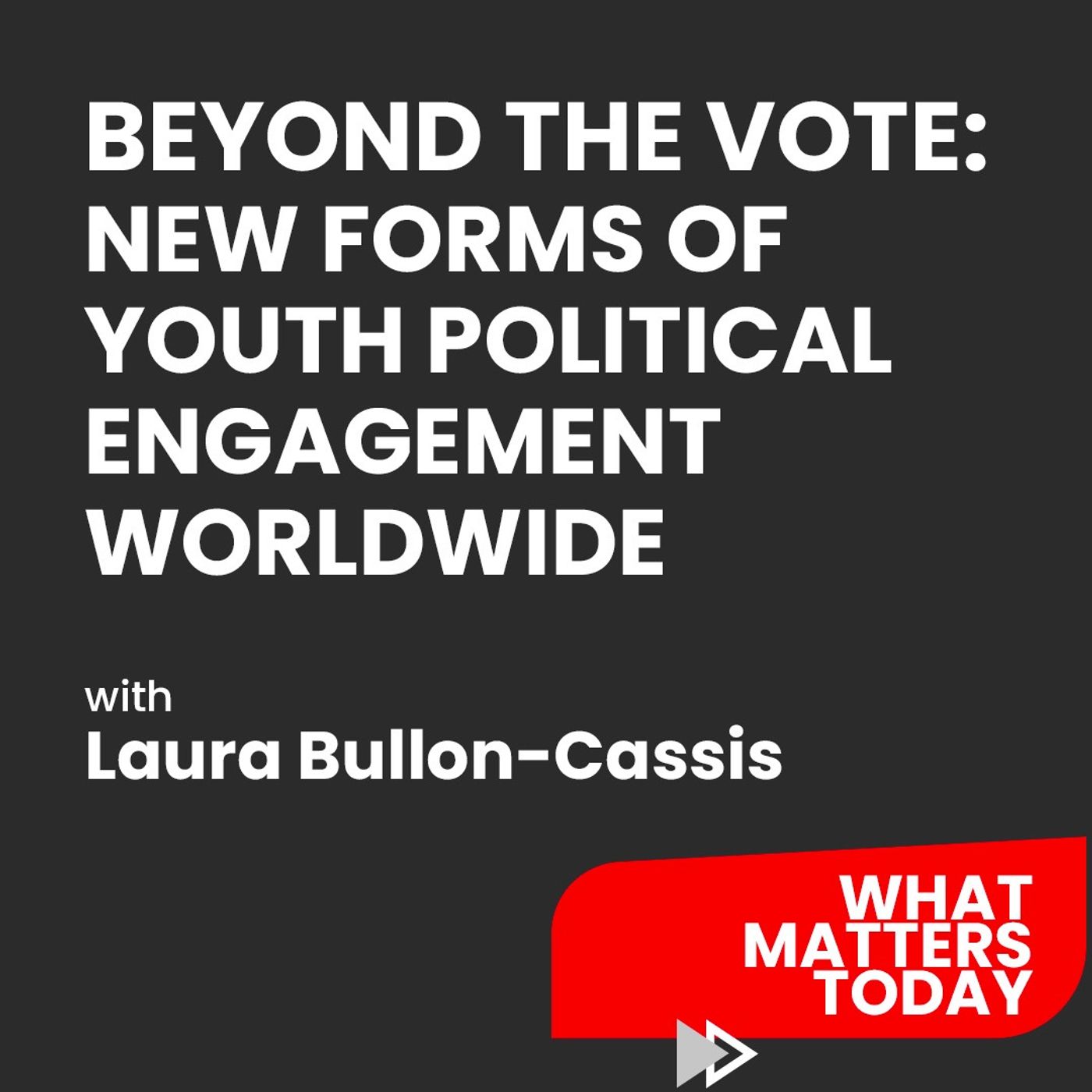



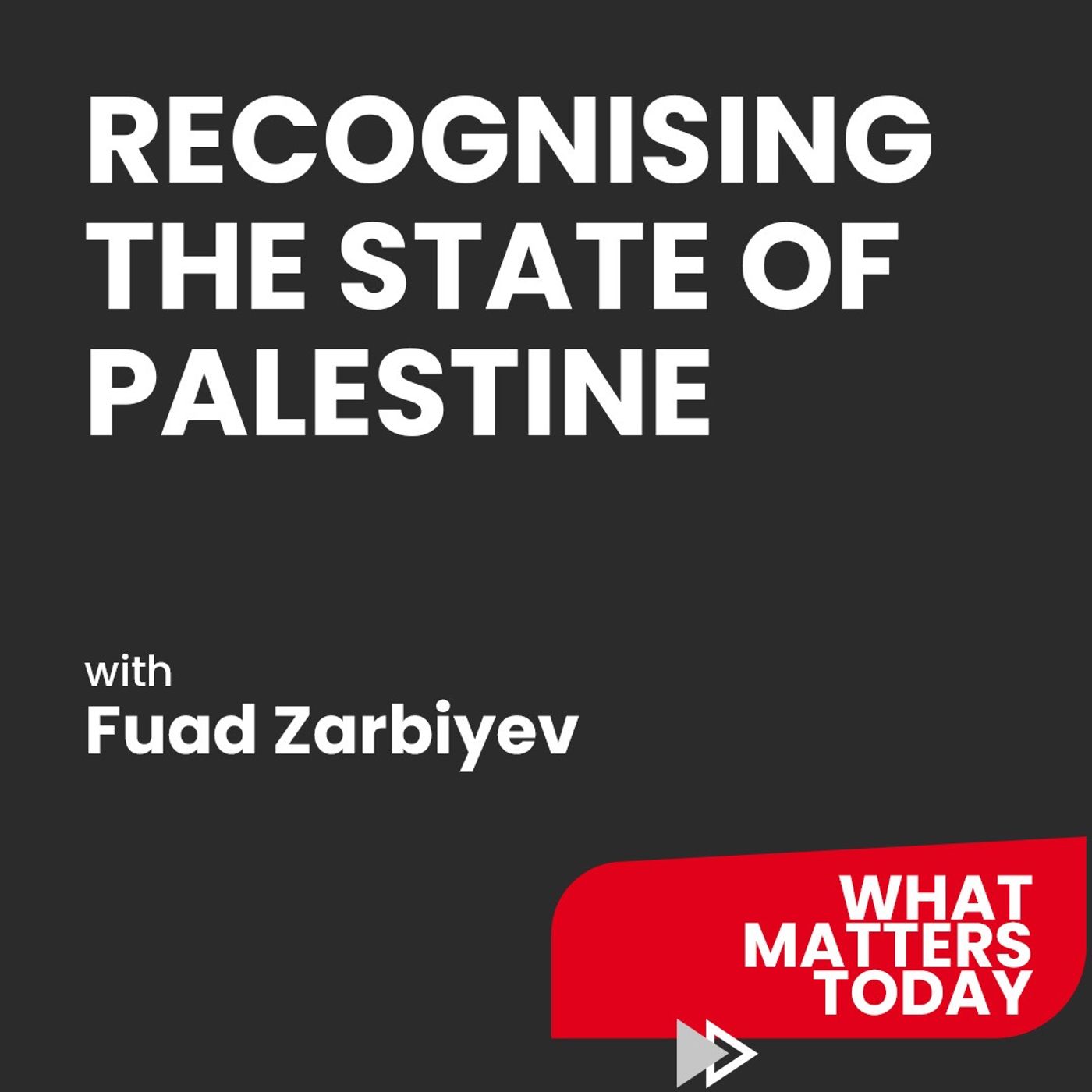

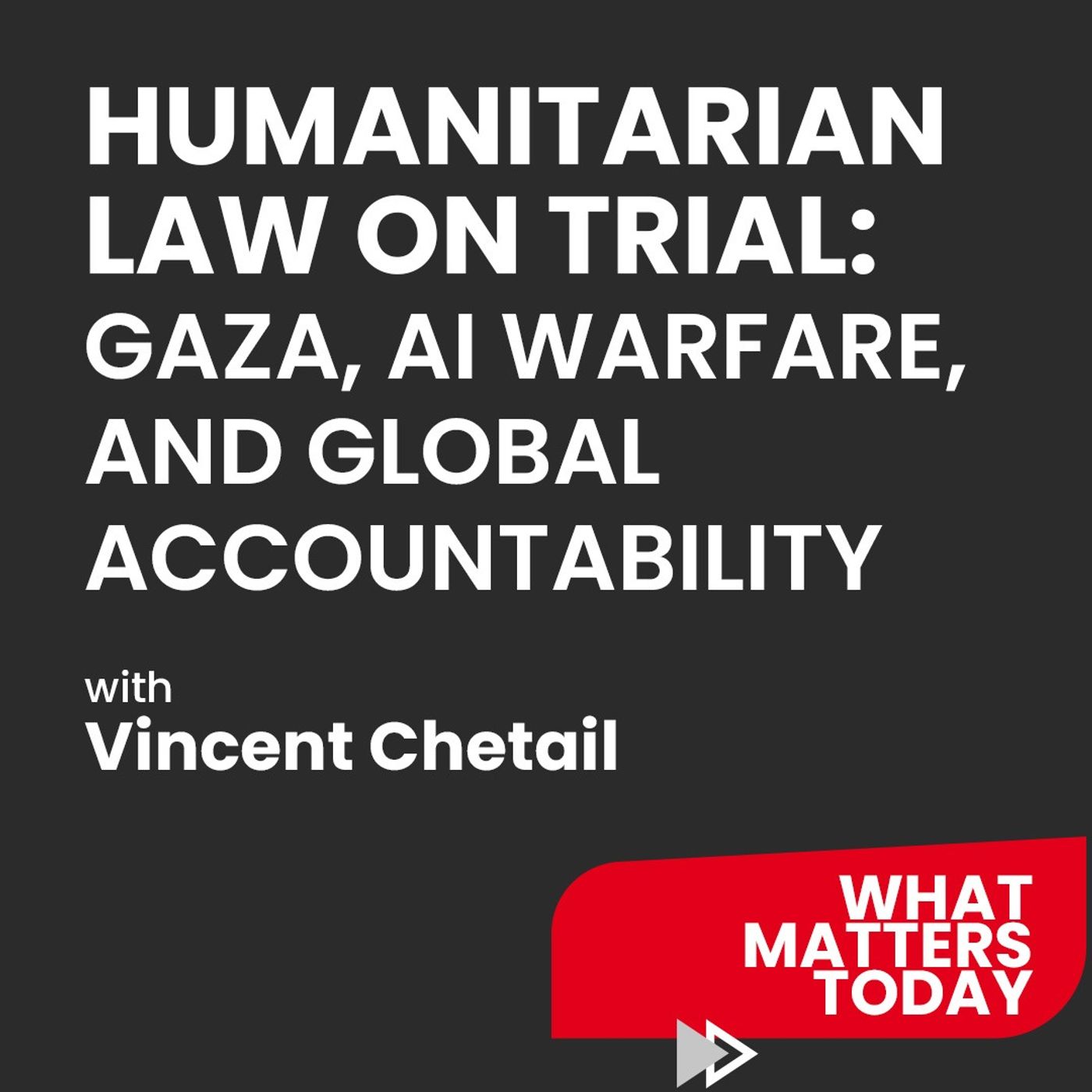
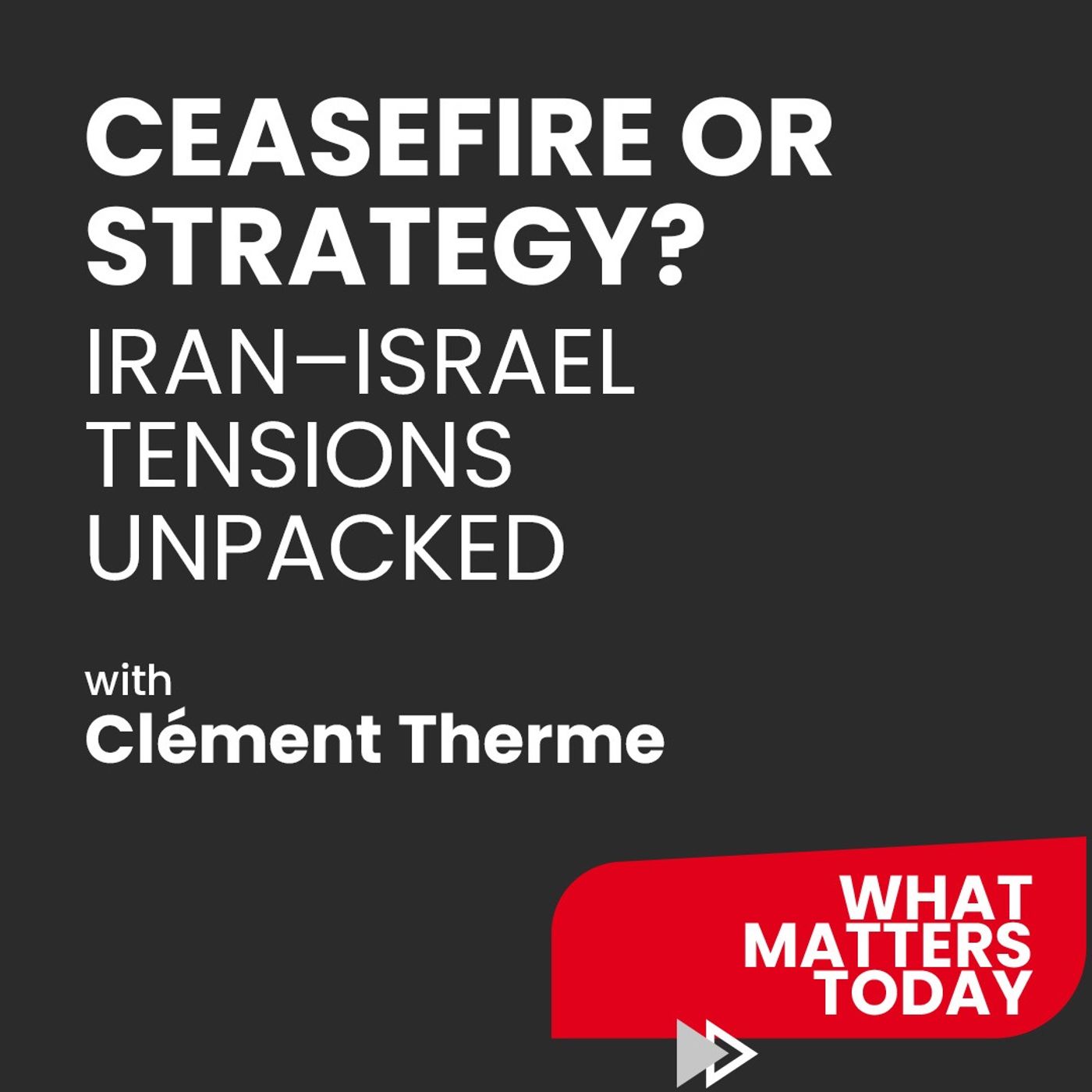
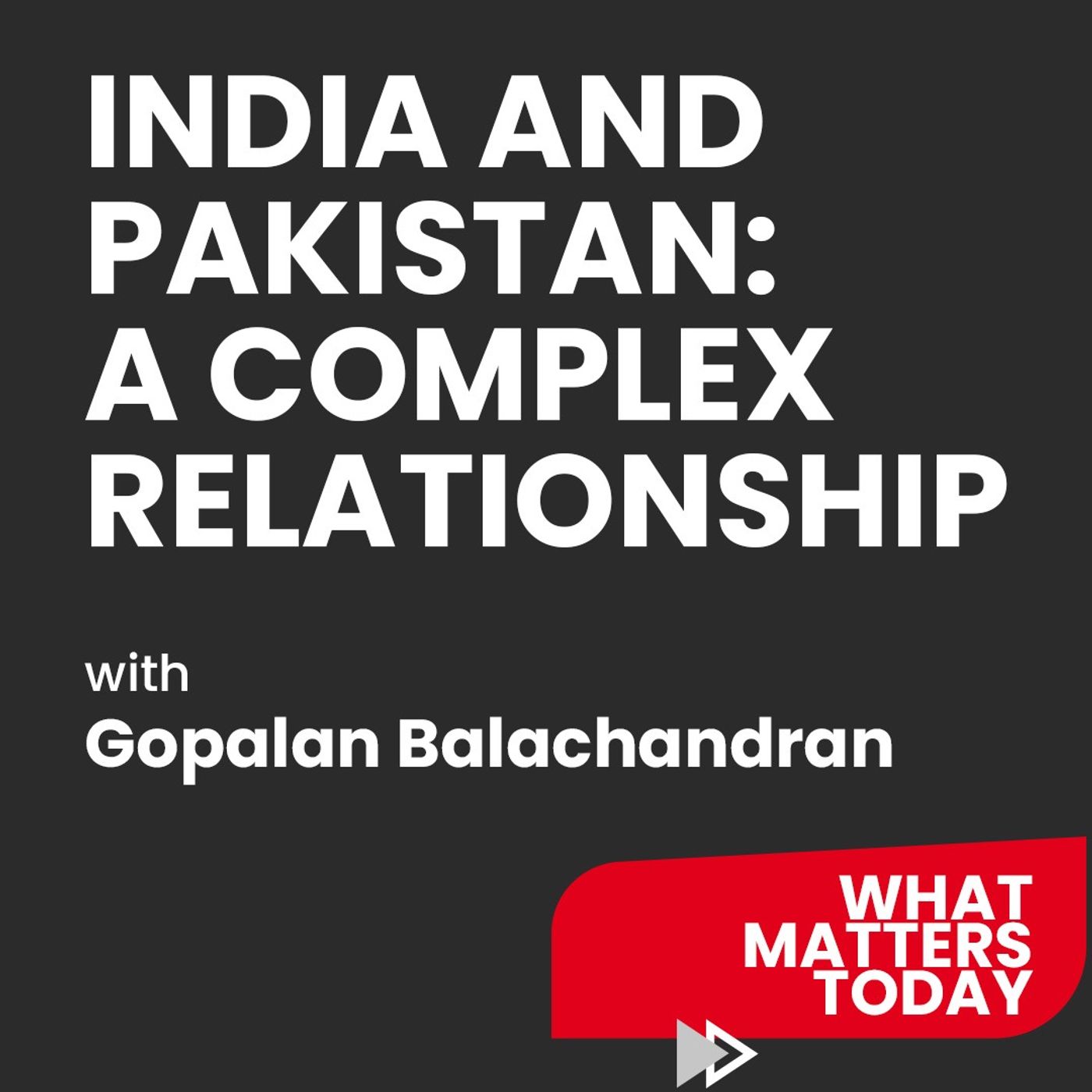
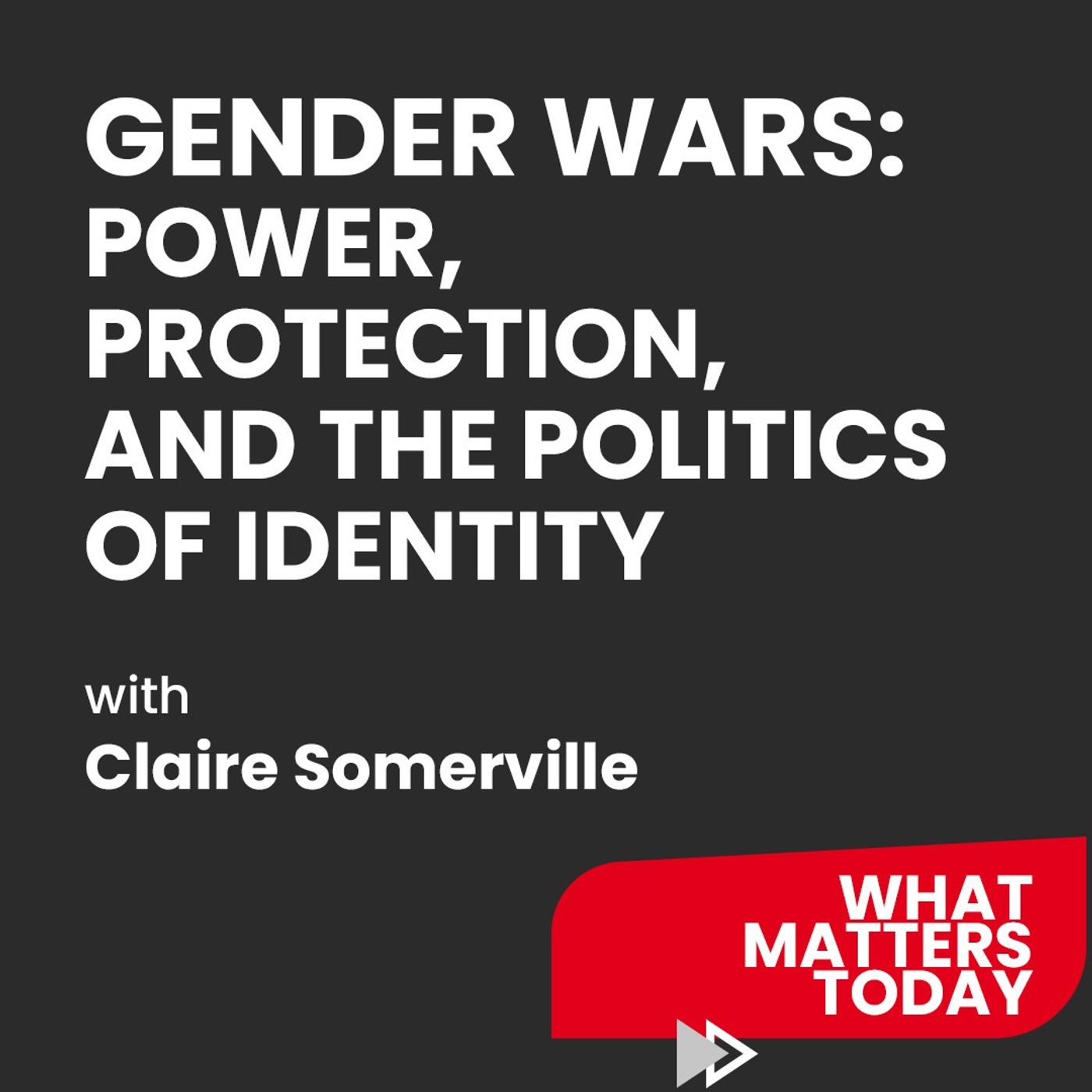













This product is made from premium quality fabric. white jacket for boys, This jacket has a spread collar, 2 pockets, button closure, long sleeves, straight hem, and unlined.white jacket for boys
You can get your money back if you pay too much. Get help from NJMCDirect’s customer service to learn how to get your money back. https://njmc.me/
This card has gained a reputation as the best public assistance provider since it does not impose annual fees on its users while providing them with advantages. Every six months, the card limit is automatically increased by an astounding amount. https://activatellbeenmastarcard.shop/
In order to maintain its clientele and deliver superior customer care, the business seeks to gather accurate input in the form of worker conduct, which is captured by Walgreenslistens. Examine the store's hygiene, its stock, its specials and offers, and its capacity to accept frank feedback from patrons. https://walgreensreceiptsurvey.info/
TV shows, events, movies, series, and miniseries are all aired on the Reelz Channel, a prominent US satellite and cable TV network owned by Hubbard Television. You may watch your favorite shows, like CopyCat Murderers, if you have an active TV membership. https://wwwreelznowcomactivate.shop/
Movies and both classic and contemporary TV shows are available on Epix Now, a unique streaming platform. Before choosing to sign up, you may try the service out for free for seven days. The Crown, the HBO series Get Out, or Westworld are among the Original Series accessible via Epix Now. https://epixcomdevices.shop/
For Walgreens to better understand the requirements and expectations of its consumers and make the necessary service enhancements, the survey is a crucial tool. There are several questions on the Walgreens feedback form that cover a wide range of topics related to the purchasing experience. https://wolgreenslistens.us/
"Kroger feedback" is the name of an online survey input stage that is owned by Kroger. The straightforward Kroger customer satisfaction survey, accessible at krogerfeedback, inquires about the contentment of participants with the supermarket's merchandise and amenities. https://krgerfeedbackwin.store/
The firm wants to get honest input about things like staff conduct, shop cleanliness, inventory, discounts, and bargains, as well as the ability to receive candid client reviews, in order to maintain its customer base and deliver better customer services. https://wlgreenslistenscom.store/
https://walgreenlistenssurvey.run/ - The organization works to improve the customer experience and find a solution to the issue. Please complete the WalgreensListens survey completely and truthfully. If you have had bad experiences, don't be afraid to voice your opinions in the comments section.
This phrase translates to "Holidays in Chile" and refers to the same concept of public holidays or national holidays observed in Chile, where people have designated days off to celebrate and observe important events or cultural occasions. https://www.genera.cl/feriados-en-chile-todo-sobre-los-dias-festivos-para-2023/sin-categoria/
A problem with the double shot feature on Delonghi coffee machines, indicating a malfunction or inadequate delivery of coffee shots, which may require diagnosis and repair. https://elegantespresso.com/delonghi-espresso-machine-double-shot-not-working/
The Walgreens survey is a feedback program designed to gather valuable input and opinions from customers who have recently shopped at Walgreens stores. This survey serves as a means for the company to assess customer satisfaction, understand their needs, and identify areas for improvement. https://walgreenslistens.top/
What a meaningful and humane article. Thank you for sharing with us. Now let's try to play the game https://poppyplaytimechapter3.com with me.